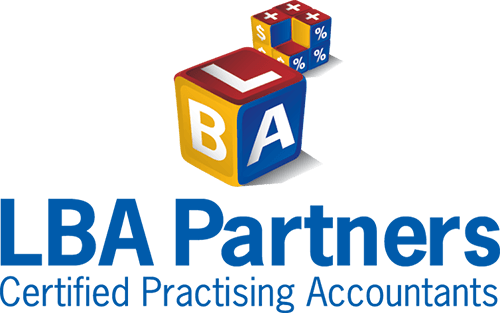P r a c t i c e U p d a t e
June 2010
Budget 2010
Following are the main tax measures announced in last month's Federal Budget, in addition to those already announced as part of the response to the Henry Review (see over the page).
50% discount on tax on interest income
From 1 July 2011, individual taxpayers will be provided with a 50% tax discount on up to $1,000 of interest earned, including interest earned on deposits held in authorised deposit taking institutions, bonds, debentures and annuity products.
Increase in the net medical expenses tax offset claim threshold
From 1 July 2010, the Government will increase the threshold above which a taxpayer may claim the 20% net medical expenses tax offset from $1,500 to $2,000, and will commence annually indexing the threshold to the CPI from 1 July 2011.
Changes to First Home Saver Accounts
The First Home Saver ('FHS') initiative will be made more flexible and allow savings in an FSA account to be paid into an approved mortgage after the end of a minimum qualifying period, rather than requiring it to be paid to a superannuation account.
Currently, an FHS account holder is required to keep their savings in an FHS account for four financial years before they are able to use those savings to buy a home. If the account holder buys a home prior to the end of that four year period, the balance of their FHS account must be transferred to their superannuation so that it remains in a concessionally taxed environment.
Changes to the super co-contribution
The Government has announced the following two changes to the superannuation co-contribution:
- the matching rate for the co-contribution will be permanently retained at 100% or $1 for each $1 contributed (rather than 150% or $1.50), which means that the maximum co-contribution that is payable on an individual's eligible personal non-concessional superannuation contributions will stay at $1,000 (rather than $1,500); and
- The income thresholds for the superannuation co-contribution will be frozen for 2010/11 and 2011/12, meaning the maximum co-contribution (of up to $1,000) will continue to only be available to people with incomes of up to $31,920 (the amount available then phases out for incomes up to $61,920).
Editor: Super fund members who are eligible to receive the Government's super co-contribution need to ensure they make their contributions before 30 June 2010 if they want to receive their entitlement for the 2009/10 income year.
To be eligible to receive a co-contribution, a taxpayer's ‘total income’ (assessable income plus reportable fringe benefits and reportable employer super contributions) must be less than $61,920, and at least 10% of that total income must be from employment (e.g., salary and wages) or business activities.
The Henry Review
The Government also released the report of the inquiry by the Treasury Secretary, Dr Ken Henry, into the entire tax system, and the Government's initial response to it.
Further initiatives announced include:
- From 1 July 2012, a Resource Super Profits Tax ('RSPT') will be introduced at a rate of 40% on profits made from the exploitation of Australia's non-renewable resources;
- The company tax rate will be reduced to 28% (from the 2012/13 income year for eligible small business companies, and from the 2014/15 income year for other companies);
- From 1 July 2012, small businesses will be able to immediately write-off assets costing less than $5,000 and depreciate all other assets (except buildings) in a single depreciation pool at a rate of 30%;
- The superannuation guarantee (SG) contribution rate will be increased to 12% (from the current 9%) by 2019/20, with gradual increases commencing on 1 July 2013;
- From 1 July 2013, the SG age limit will be increased to 75 years (currently 70 years), which means that employees aged 70 to 74 will generally be eligible to have SG contributions made on their behalf;
- n From 1 July 2012, the Government will match concessional contributions (i.e., basically deductible contributions) which are made by or for the benefit of individuals with adjusted taxable incomes of up to $37,000 at the rate of 15% for each $1 of concessional contributions, with an annual maximum amount payable of $500; and
- From 1 July 2012, individuals aged 50 or above with superannuation balances below $500,000 will have a concessional contributions cap of $50,000 (effectively extending the existing transitional concessional contributions cap for such individuals).
Editor: The Government said it would not accept some Henry recommendations, such as reducing the 50% CGT discount, discounting negative gearing deductions, or abolishing the luxury car tax.
However, it has left some on the table, including recommendations to tax fringe benefits and employer superannuation contributions in the hands of employees, making it more difficult to claim personal tax deductions, and removing important small business concessions (such as the 50% active asset reduction and the 15 year exemption) and a range of concessional tax offsets (such as the medical expenses tax offset).
Centrelink Data Matching Program
On 30 June 2010 Centrelink will complete a matching process of up to 200,000 of its customer records with the ATO Taxpayer Records System, which will enable Centrelink to identify instances where a person with a debt is eligible for a payment from the ATO (e.g., a tax refund or available credit).
Centrelink may then give a notice to the ATO requiring them to pay some, or all, of the amount to Centrelink in order to satisfy or partially satisfy a debt owed by the person to Centrelink.
Superannuation Clearing House: Registration details
Eligible small businesses (with fewer than 20 staff) are now able to register online to use the Government's free Small Business Superannuation Clearing House, by visiting www.medicareaustralia.gov.au/super.
The service, which commences from 1 July 2010, enables small businesses to pay their employees' superannuation to a single location in one electronic transaction.
The Clearing House will then send the contributions to the appropriate superannuation fund and employers will be able to access a record of their contribution history whenever it's needed.
FBT car parking threshold
The car parking threshold for the FBT year commencing on 1 April 2010 is $7.46 (up from the amount of $7.25 that applied in the previous FBT year).
Please Note: Many of the comments in this publication are general in nature and anyone intending to apply the information to practical circumstances should seek professional advice to independently verify their interpretation and the information's applicability to their particular circumstances.



